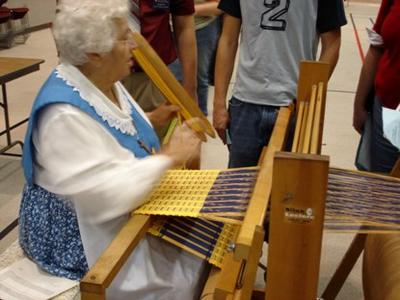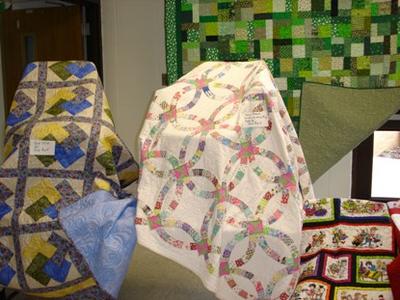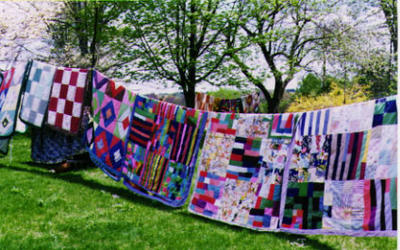Metaphysical Fair Oct. 29-30

By Betsy Curry
If you are interested in learning more about hypnosis, channeling, meditation and other paranormal events, be sure to check out West Virginia’s largest metaphysical fair at West Virginia University at Parkersburg Oct. 29 and 30.
The Self-Health and Awareness Expo provides more than 45 workshops during the Halloween weekend. The workshops feature topics such as past lives, hypnosis, near-death experiences, channeling, aromatherapy, meditation, communicating with nature, communicating with animals, Feng Shui, angels and fairies, alternative health care, acupuncture, breath work, dreams, Tai Chi, and many more paranormal phenomena.
Phil McClung, professor of psychology, and Jim Beichler, professor of physics, will present workshops at the expo. Beichler is the world’s first credentialed paraphysicist. He explores innovative science that supports the idea of life after death. Beichler’s workshop, “Understanding Death,” discusses the white light, the tunnel, the past life and much more dealing with the thought of life after death. McClung’s workshop, titled “Understand Dreams,” provides us with the interpretation of dreams. When we sleep, our subconscious often presents us with important information through our dreams. Other workshops include a psychic reading, which will bring mini-messages from people and spirits on the other side. Fred Kennedy, a Native American often referred to as Medicine Man, will present a workshop based on his life experiences. Kennedy has spent his entire life passing on knowledge of his culture and traditions to those interested in sovereignty and the ways of traditional life.
The Expo provides us with a chance to observe speakers such as Tapas Fleming, Grandmother Mechi, Rosemary Guiley and many more.
Tapas Fleming, founder of the Tapas Acupuncture Technique, is the leading force in the up-and-coming field of energy psychology. TAT is a proven simple and effective technique that delivers inner peace, relaxation, vibrant health and empowerment in minutes. Many thousands of people use TAT worldwide. It removes traumatic stress without re-living the trauma, ends negativity, and much more. TAT has brought comfort to disaster victims, war veterans and grieving family members. Fleming healed herself of cancer with TAT.
Grandmother Mechi, founder of Kolaimni, will also be speaking at the Expo. Kolaimni, channeled through Mechi Garza, a Choctaw-Cherokee Medicine Woman, means “connecting with the light.” Kolaimni is a healing form based on natural physical law. It works on the electro-magnetic covering that surrounds the body. The Kolaimnist’s hands are held about an inch above the body so that the recipient’s own vibrations are aligned and synchronized. Grandmother Mechi will talk about Kolaimni and give a demonstration. After the demonstration, everyone will be able to feel the surge of energy as it flows from your own hands. Healing is a creative process that is a part of nature. We all have the natural ability to heal ourselves and to help others.
Be sure to check out all the workshops and speakers. There are many special events occurring during the evening including a Spiritualist Trumpet Circle and Table Tipping.
The Exhibit Hall opens the doors at 9:30 a.m. Saturday, Oct. 29. Workshops begin at 10 a.m. Cost is $8, although some events have an additional charge as listed in the program guide or on the web site www.selfhealthandawarenesscenter.com. A $2-off coupon is available by stopping at Mystic Dragon Books at 6250 Grand Central Avenue in Vienna. Call them at (304) 295-8997.












